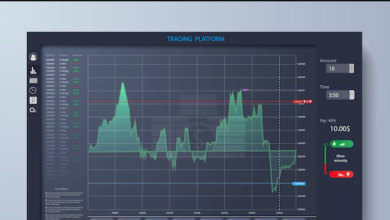NHR Scholarships 2026: Key Deadlines and Application Timeline
In today’s fast-evolving academic landscape, research plays a pivotal role in shaping the future of industries, including medicine. The NHR Scholarships 2026 offer a valuable opportunity for aspiring PhD scholars and researchers who are eager to work at the intersection of advanced computing and medical sciences. With Germany’s growing emphasis on High-Performance Computing (HPC) through the National High-Performance Computing (NHR) initiative, this scholarship is specifically designed to support students engaged in computational and data-intensive research—an ideal match for medical researchers working on healthcare innovation.
What Is the NHR Scholarship?
The National High-Performance Computing (NHR) initiative in Germany was launched to provide access to state-of-the-art computing infrastructure for researchers across multiple disciplines. These scholarships allow PhD candidates and researchers to collaborate with prestigious German institutions, utilizing powerful computing tools to solve complex problems. Medical research fields such as bioinformatics, neuroscience, epidemiology, and medical imaging benefit enormously from access to such resources.
The NHR Scholarships 2026 are particularly appealing for international students who wish to study free in Germany while contributing to high-impact research areas. Applicants interested in using computing for medical innovation—such as disease modeling, pharmaceutical simulations, and personalized healthcare solutions—can truly benefit from this opportunity.
Why Medical Researchers Should Apply
The convergence of healthcare and technology has redefined modern medical services. Whether it’s through AI-powered diagnostic tools, genome sequencing, or real-time pandemic modeling, the application of high-performance computing is growing rapidly in the healthcare sector.
Medical researchers applying for the NHR Scholarships can:
-
Collaborate with interdisciplinary teams from computing, engineering, and medical backgrounds.
-
Gain access to advanced simulation software for pharmacokinetics and diagnostics.
-
Use big data analysis to explore disease trends or create predictive health models.
-
Advance innovations in telemedicine and e-health platforms.
Germany offers a nurturing environment for academic excellence, especially in medical research. The country’s robust infrastructure, research grants, and partnerships with healthcare institutions add great value to the scholarship recipients’ careers.
Key Deadlines to Mark on Your Calendar
To increase your chances of securing an NHR scholarship, planning ahead is essential. Below is a timeline to help medical scholars stay organized and ready for submission:
1. Initial Preparation Phase (July – October 2025)
-
Start researching institutions and professors involved in the NHR program.
-
Shortlist your research area and ensure it aligns with medical or life sciences applications of HPC.
-
Begin drafting your research proposal, especially if your project involves medical modeling, diagnostics, or data analytics.
-
Collect transcripts, certificates, and English proficiency test scores (IELTS/TOEFL).
2. Application Window Opens (November 1 – December 31, 2025)
-
Submit your complete application through the designated NHR application portal.
-
Attach your Statement of Purpose, Letter of Recommendation, academic documents, and detailed research plan.
-
Highlight how your medical project will use computing tools and contribute to real-world health problems.
3. Review and Interview Process (January – February 2026)
-
Applications will be shortlisted based on academic merit, research potential, and proposal feasibility.
-
Shortlisted candidates may be asked for virtual interviews or additional documentation.
-
Be prepared to discuss your research topic, objectives, methodology, and long-term goals in healthcare.
4. Final Selections and Offer Letters (March – April 2026)
-
Selected candidates will receive scholarship offers along with guidance on next steps.
-
The offer typically includes details on monthly stipend, tuition waivers, and access to computing resources.
-
Confirmation from the host university or research center will also be required.
5. Visa and Pre-Departure Planning (May – July 2026)
-
Apply for a German student/research visa immediately upon receiving the scholarship offer.
-
Secure accommodation, insurance, and other essentials for your stay.
-
Attend any pre-departure orientation or virtual training organized by the scholarship body or university.
6. Program Commencement (September – October 2026)
-
Join your host university or research center in Germany.
-
Begin coursework (if any), orientation sessions, and integrate into your research team.
-
Start accessing NHR computing resources for your medical research work.
Important Tips for a Strong Medical Application
-
Align Your Research with NHR Goals
Your proposal should show how your medical research benefits from high-performance computing and contributes to health sciences. -
Be Technically Precise
Demonstrate a good understanding of the computational tools and data analysis techniques you plan to use. -
Show Societal Relevance
Highlight the impact your research could have on public health, healthcare systems, or clinical practices. -
Select the Right Supervisor
Finding a German professor who supports your research direction is crucial. Their recommendation can significantly boost your application. -
Stay Organized
Follow the deadline calendar carefully and prepare documents early. Missing even one document can result in disqualification.
Conclusion
The NHR Scholarships 2026 are more than just academic grants—they’re gateways to transformative global research experiences. For medical researchers, this is an opportunity to gain hands-on access to Germany’s world-class computational resources, collaborate with diverse professionals, and contribute to critical breakthroughs in healthcare.
With precise planning, a strong proposal, and a clear understanding of the timeline, candidates can position themselves as top contenders for this prestigious award. Whether you’re exploring ways to predict disease outbreaks, designing AI-driven treatment tools, or simulating new drug responses, the NHR platform can help bring your research to life.
Apply early, stay focused, and let this opportunity shape the future of medical science through the power of data and computing.




